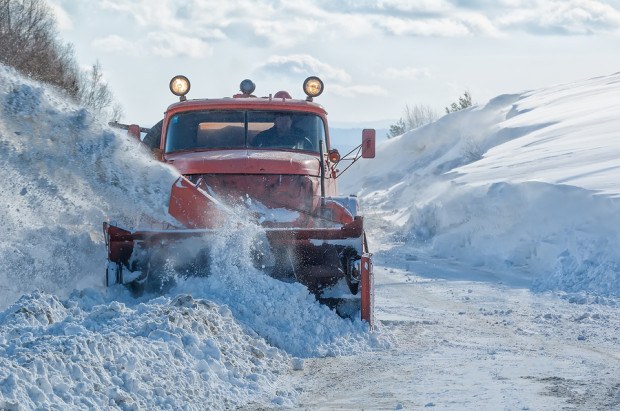A second “bomb cyclone” blizzard hitting the United States was limiting the movement and processing of corn, soybeans and wheat around the Midwest and Plains on Thursday.
Grain trader Cargill Inc said it was closing three of its grain handling facilities in Minnesota, two in South Dakota and one in Nebraska on Thursday because of the storm. It also was closing a beef processing plant in Colorado.
Rival Archer Daniels Midland Co temporarily closed several grain and edible bean elevators in South Dakota, North Dakota, Minnesota and Wisconsin due to the snow.
The storm was dumping more than a foot of heavy snow and winds were gusting up to 65 miles (105 km) per hour by midday across northeast Colorado north up through northern Wisconsin, the National Weather Service said.
The high winds also were deterring farmers from pulling crops out of their on-farm storage facilities even in areas where local elevators and processors were open, grain dealers said.
Ranchers around the region were scrambling to keep their herds safe from the snow and wind, which was particularly threatening to young calves.
The storm, which comes as many farmers are still cleaning up from severe floods following a similar storm in March, also threatened to delay planting of U.S. corn and soybeans in the coming weeks as it will leave behind saturated fields after the snow melts.
U.S. Agriculture Secretary Sonny Perdue said at a Thursday news conference he had spoken to lawmakers about disaster relief legislation. The Agriculture Department currently has no program to cover the catastrophic losses of grains in storage from the widespread flooding.
“That’s not one of those products that’s insured once it’s out of the field,” Perdue said. “I think those are the kind of considerations we should look to.”
The department separately announced on Thursday emergency grazing measures in Iowa to help livestock producers who lost pastures or fences in recent bad weather.
Lawmakers from Nebraska and Iowa jointly announced a disaster relief bill that would allow early withdrawals from retirement accounts and tax deductions, among other measures.





















 High Court Ruling on Trump Tariffs to ‘Ease Uncertainty,’ Says AM Best
High Court Ruling on Trump Tariffs to ‘Ease Uncertainty,’ Says AM Best  Large Scale Cargo Ring Busted in LA, $5M Recovered
Large Scale Cargo Ring Busted in LA, $5M Recovered  Teens’ First Year on the Road Most Deadly
Teens’ First Year on the Road Most Deadly  New Texas Law Requires Insurers Provide Reason for Declining or Canceling Policies
New Texas Law Requires Insurers Provide Reason for Declining or Canceling Policies 

